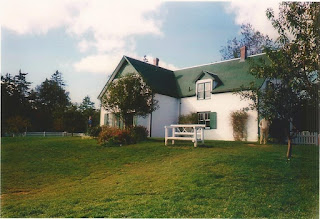Fascinating Turnpike Reading
I should be writing about all fascinating things relating to my vacation before all that becomes too old. However, yesterday afternoon while waiting for an hour and a half at a rest area on the MassPike for someone I was supposed to meet (doesn't that sound creepy?), I read this incredibly interesting article in
School Library Journal. I found a hard copy on my desk. I have no idea how I was originally directed to the thing.
Anyway, the article was called
Why Johnny Won't Readby
Michael Sullivan. I suppose I should have known what Sullivan says in this article but it still seemed like news. In short, Sullivan says that boys' brains are wired differently than girls. "...boys' brains engage in less cross-hemisphere activity than girls. In other words, boys use only half of their brain at any given time. That means when boys read, they need an extra jolt of sound, color, motion, or some physical stimulation to get their brains up to speed." This explains why they like books about activities--sports, adventures, fantasies that involve adventures. They also model themselves on their fathers who tend to read more newspapers and informational materials that tell them
how to do things because, remember, their dads are big boys with that same kind of brain wiring. So both physically and culturally, boys are different in terms of their reading.
However, Sullivan says, schools promote girl-type books--books that involve relationships, books that require internal reflection rather than action, books that emphasize the emotional rather than the physical. When boys never see the kinds of things they're interested in reading taught or on reading lists, they come to think that reading isn't something for them.
I can give you an example of this happening with an older boy. He was a great reader as a grade schooler and even in middle school. So good, in fact, that he ended up taking honors and AP English courses all through high school. And what kinds of things did he read there?
The Awakening by Kat Chopin.
To the Lighthouse by Ginnie Wolfe. And
Belovedby Toni Morri. Those books are too girlie for a lot of women, forget an adolescent boy. And, yes, he gave up reading by the time he was a junior in high school.
I so hope I haven't written anything that turns boys off reading.

